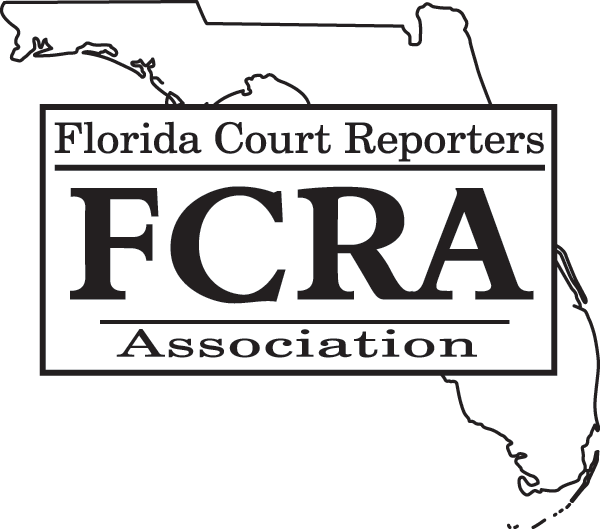FPR™ Frequently Asked Questions
Why is it important to have an FPR™ certification?As a court reporter or owner/manager, obtaining your FPR™ certification will give you a solid education on the federal, state, and ethical rules governing the profession of court reporting. It will help you handle challenging situations that come up in the course of your work. It will also assure your clients that you are well-versed in the requirements of your job and are engaged in your profession. As an owner/manager, in addition to that stated above, an FPR™ certification will demonstrate your commitment to professional excellence to your clients and your reporters. If you are a student, acquiring your FPR™ certification shows potential employers you are serious about becoming the best reporter you can be. It will let you hit the ground running when you begin your career, providing you with a knowledge base many non-FPR™ veteran reporters may not have. If you are a court reporting instructor, your FPR™ certification will help ensure that you are guiding your students in accordance with federal and state laws, rules, and best practices, and you will be providing an example for students to emulate. If you are a scopist, your FPR™ certification will give you insight into the life of the working reporter, will ensure that you are knowledgeable in all aspects of transcript production and all types of proceedings. Your certification will also serve as an outward sign to potential court reporter clients that you take your profession and theirs seriously. What is The Florida Manual?The Florida Manual is an invaluable resource for those involved in the court reporting profession. The Florida Manual was prepared by the Florida Court Reporters Association to provide a uniform and professional guide for reporters in the state of Florida. It provides a quick reference to the rules that affect our profession; provides assistance in understanding procedures; and provides guidance in handling the challenges most frequently encountered by court reporters. Is the FPR™ a mandatory certification?No. The FPR™ is a voluntary certification. At this time there is no mandatory certification for court reporters that is implemented in Florida due to lack of funding by the Florida Supreme Court. Is there a skills test associated with the FPR™ certification?No. The FPR™ exam is a knowledge-based exam only. The FPR-C™ was introduced in 2021 as a skills complement to the FPR™ and is a voluntary (optional) certification based on either a skills test or reciprocity, if eligible. Do I need to maintain continuing education to retain my FPR™ certification?Yes. You will be required to maintain 3.0 CEUs in every three-year cycle. Once I obtain my FPR™ certification, does it have to be renewed?Your FPR™ certification will automatically renew every three years provided you have maintained your 3.0 CEU requirement within that 3-year renewal cycle. If you fail to meet your CEU requirement, your FPR™ certification will lapse. What happens if my FPR™ certification lapses?If you let your FPR™ certification lapse and still wish to maintain your certification, you will need to take the seminar again and re-sit for the FPR™ exam If I fail the FPR™ exam, is there a waiting period before I can retake the exam?You will be eligible to retake the exam the next opportunity that FCRA offers the program. I have been an FPR™ for several years and would like to make sure I’m current on the latest changes in laws. Is there a refresher course I can take?Yes. You can register to attend any FPR™ seminar given by FCRA at a reduced rate. The seminar is always being updated and revamped, so even though you’ve taken the seminar before, there’s always new information being presented. And, of course, you will not be required to take the exam at the end of the seminar. Who is eligible to sit for the FPR™ exam?The following persons are eligible to sit for the FPR™ exam: Any stenographic participating member in good standing; Can I study ahead of time for the FPR™ exam?Since the Florida Rules and Ethics Certification Seminar is so comprehensive, most test candidates do not find it necessary to prepare or study in advance of the seminar. If you feel the need to prepare ahead of the seminar, however, helpful resource materials can be found here. I’ve been a reporter for 25 years. Why do I need to take the FPR™ seminar?There’s not a court reporter, agency owner, manager, teacher, or scopist who hasn’t walked out of FCRA’s Florida Rules and Ethics Certification Seminar with many “Aha” and “OMG” moments! You’ll be amazed at what you don’t know about the profession you’ve been a part of all these years. Just because reporters have always done something a certain way for many years doesn’t mean it’s the correct way. Statutes, rules, and guidelines are constantly changing, and it is vital t to stay current. How can I receive updates to my Florida Manual?Updates, if any, will be sent to all current FPR™ holders and, in addition, non-FPR™ holders who have taken the seminar within the preceding year. I had something come up on a job that I don’t know how to handle. Who can I ask?The FCRA Ethics Committee provides a help line to members of FCRA. Please submit your question to the committee via email. Due to the volume of questions and the time-consuming nature of handling these inquiries, this help line is reserved for FCRA and FPR™ members only. If you would like to email the committee with a question, please click here The Florida Professional Reporter and FPR designations are trademarks of the Florida Court Reporters Association. |

